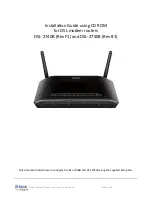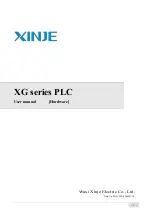
1-31
Cisco BPX 8600 Series Installation and Configuration
Release 9.3.0, Part Number 78-10674-01 Rev. D0, July 2001
Chapter 1 The BPX Switch: Functional Overview
Switch Software Description
Enabling cost-based route selection automatically enables cache usage. Enabling Hop-Based Route
Selection automatically disables cache usage. Cache usage can also be independently enabled or
disabled for both types of route selection.
•
On-Demand Lowest Cost Route Determination
On-demand routing chooses the current lowest cost route to the destination node. This lowest cost
route is bounded by the maximum route length of 10 hops. If more than one route of similar cost
and distance is available, the route with most available resources is chosen. No route grooming
occurs after the initial routing. A connection does not automatically reroute if its route cost changes
over time. A connection also does not automatically reroute if a lower cost route becomes available
after the initial routing. However, a forced reroute or a preferred route can be used to move the
connection to a lower cost route.
•
Delay-Sensitive Routes
Delay-sensitive IGX connection types (Voice and Non-Timestamped Data) may be configured to
use the worst case queueing delay per trunk, rather than the configured trunk cost, in the
lowest-cost route determination. The trunk delay acts as the cost attribute in the Dijkstra algorithm.
The default mode for the delay sensitive connections is to use the trunk cost. All other connection
types always use the trunk cost in the route determination.
AutoRoute does not use the worst case end-to-end queueing delay in route selection for delay
sensitive BPX connection types (ATM CBR). Cost-based route selection does not change this.
•
Cost Cap
A maximum allowable cost value (cost cap) is used during route determination to prevent selection
of a route which exceeds an acceptable cost. For routing based on delay, the cost cap is the
acceptable end-to-end delay for the connection type. This cap is configured network-wide per delay
sensitive connection type.
For routing based on trunk cost, the cost cap is the acceptable end-to-end cost. This cap is
configured per connection. The default cost cap is 100, which is derived from the maximum hops
per route (10) and default cost per trunk (10). You can change the cost cap at any time. If the cost
cap is decreased below the current route cost, the connection is not automatically rerouted. A
manual reroute is required to route the connection to fit under the new cost cap. This gives you more
control over the connection reroute outage.
•
Hop-Based Route Selection
Since Release 9.0, AutoRoute uses Hop-Based Route Selection. The cost of all trunks is set to the
default cost (10). The cost cap of all connections is set to the maximum allowable cost (100). All
other new cost-based routing parameters are set to regular default values.
•
AutoRoute Interoperability
Because AutoRoute is source-based, nodes can interoperate using different route selection
algorithms. The originating node computes the full end-to-end route based on its own knowledge
of the network topology. The route is then passed to the subsequent nodes on the route. This source
routing allows a mix of Cost-Based and Hop-Based Route Selection to run in a network.
Cost-Based AutoRoute Commands
You use these switch software Command Line Interface (CLI) commands for cost-based route selection:
•
cnfcmparm
Enables cost-based route selection. This is a SuperUser command to configure all AutoRoute
parameters. By default cost-based route selection is disabled. Enabling or disabling cost-based
route selection can be done at any time. Each connection routing cycle uses whichever algorithm
is enabled when the cycle begins. The configuration is node-based, not network-based, which
allows each node to have its own route selection algorithm.
Summary of Contents for BPX 8600 Series
Page 43: ...P A R T 1 The BPX Switch ...
Page 44: ......
Page 151: ...P A R T 2 Installation ...
Page 152: ......
Page 261: ...P A R T 3 Initial Configuration and Network Management ...
Page 262: ......
Page 291: ...P A R T 4 Configuring Connections ...
Page 292: ......
Page 481: ...P A R T 5 Troubleshooting and Maintenance ...
Page 482: ......
Page 531: ...P A R T 6 BPX Specifications ...
Page 532: ......
Page 563: ...P A R T 7 Appendices ...
Page 564: ......
















































